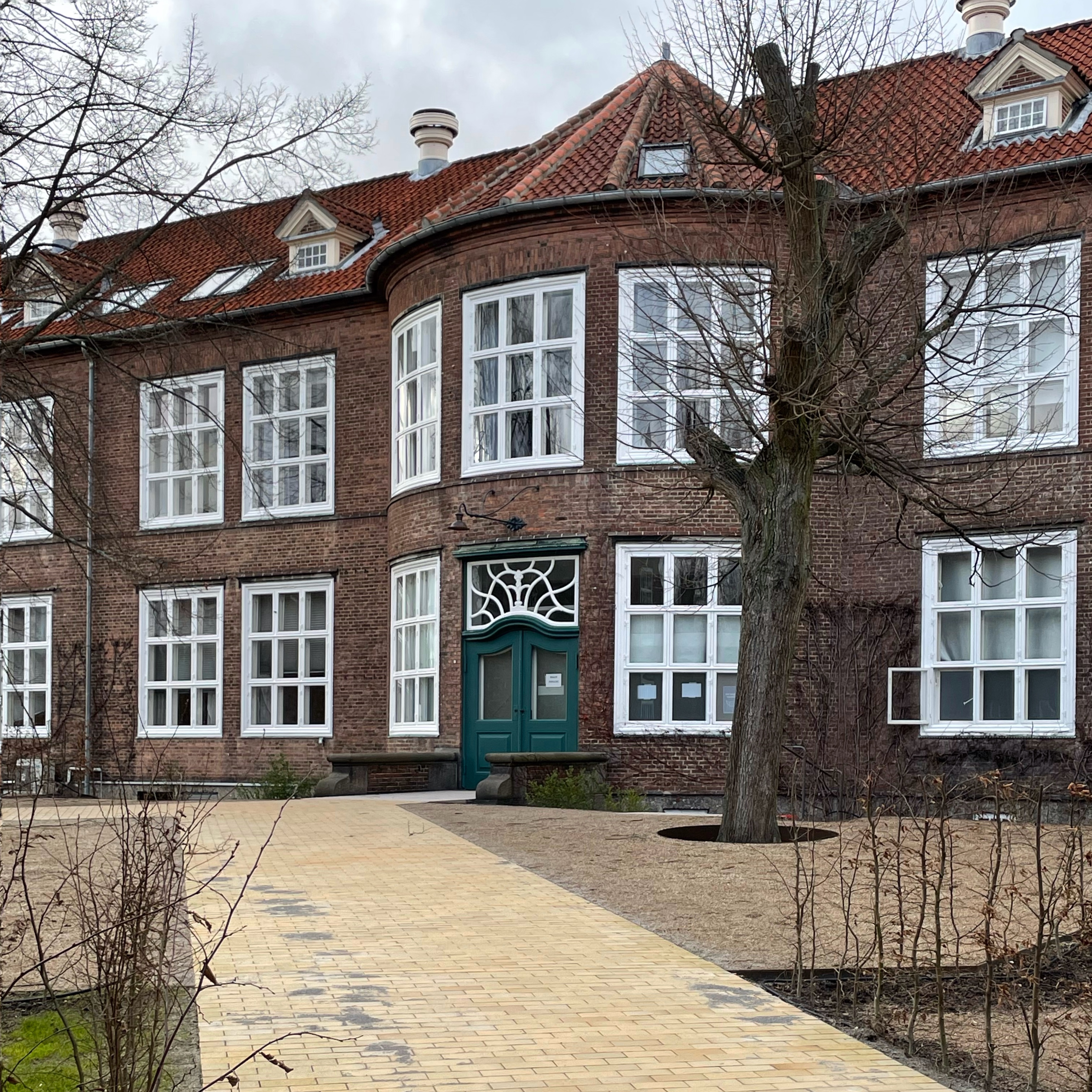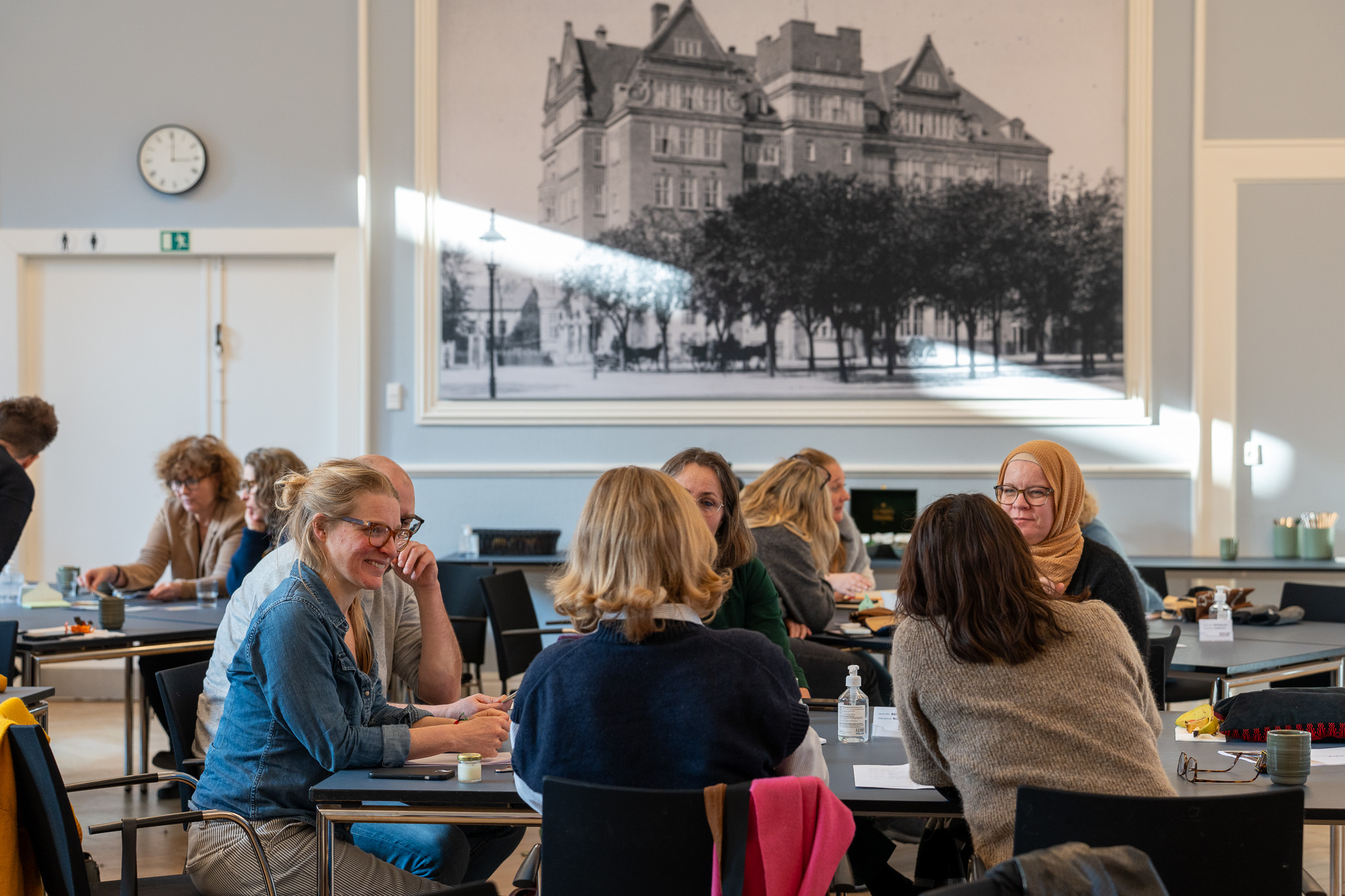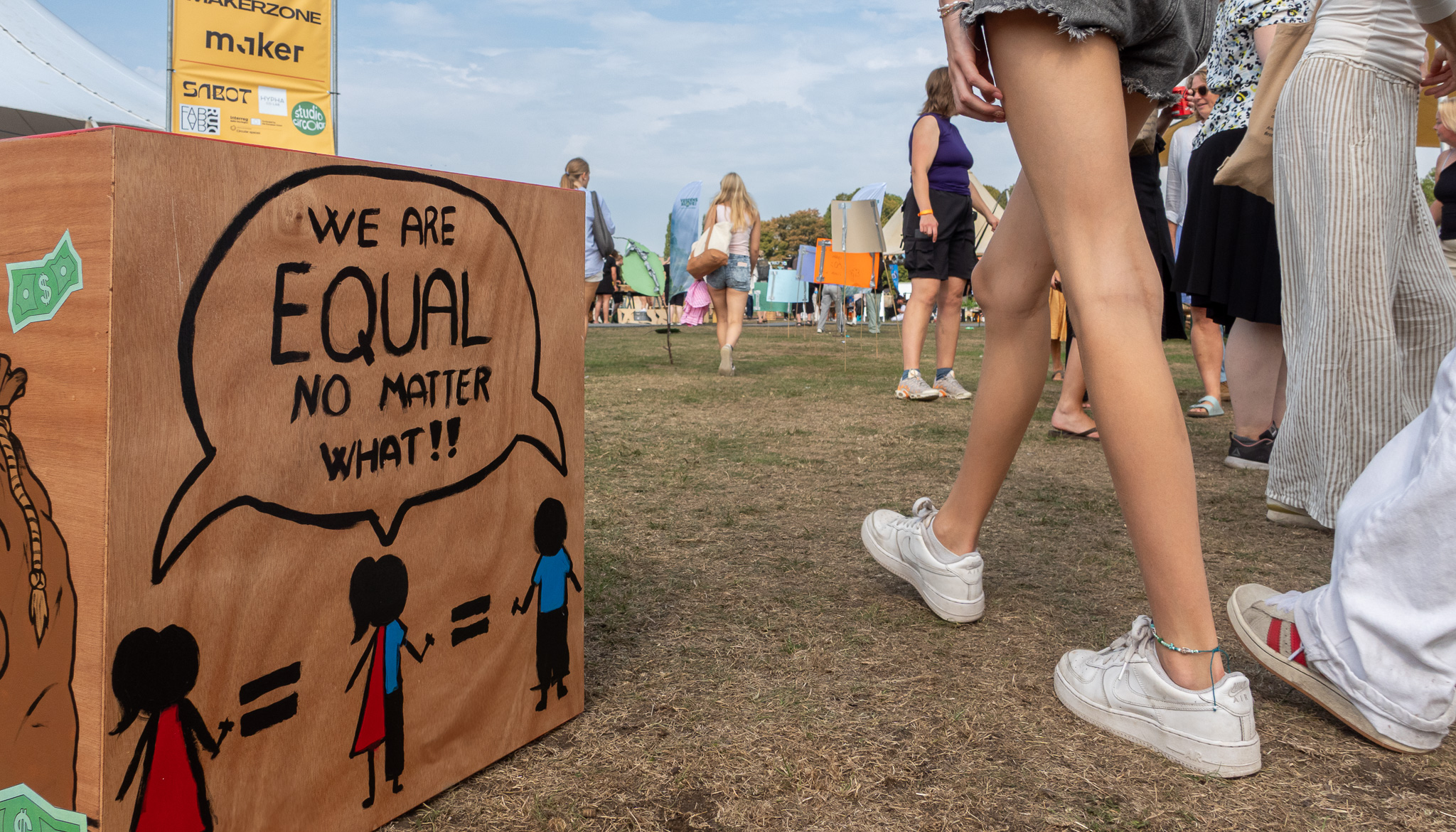-65.jpeg)
Partnerships develop tools for more inclusive event
-65.jpeg)
Together with DTU and Foreningen Folkemød, we have developed universal design conversation cards that help actors in the event and culture area to spot their blind spots and thus make their events more inclusive.
When Denmark's largest democracy festival, Folkemødet, runs, with more than 300 scenes going on at the same time. It can take the breath away from even the most hardened audience.
With so many scenes and audiences, it can be difficult to see for the audience what is going on when, and very low practicality it can be difficult to hear what is happening on the stages if you have not arrived enough time and thus have to stand some distance from the stage. It may also be that someone with poor hearing is sitting in the audience who finds it difficult at all to be at a Folk Meeting with so many people and sounds everywhere.
Some of the challenges and possible solutions to them that the Bevica Foundation, Foreningen Folkemød and DTU want to draw attention to with a newly developed deck conversation card on universal design.
We stand on the shoulders of knowledge
The idea for the cards is based on a similar deck developed at DTU by researcher network member Dagný Valgeirsdóttir, and which is used in workshops with students to inspire them to design technological solutions that can be used as much as possible. The maps are built around three levels of loss of ability to function: permanent, temporary or situational, which are described on the one hand, and three suggestions to include people with loss of ability to function.
A wheelchair burger, for example, has lost its functionality to be able to walk. The temporary loss of the walk function is a broken leg, while the situational function loss of the go function is uneven coating. Examples of including this permanent, temporary or situational loss of function are to make sure that there are even coverings, the possibility of which and wheelchair ramps where necessary.
The maps contain descriptions of a range of functional skills with similar descriptions of permanent, temporary and situational loss of function and associated suggestions for increasing their inclusion, and the hope is that it will stimulate the minds of the people responsible for events and events in the event and cultural field.
The maps can be downloaded in digital version via the button at the top of this page.
Latest News
Follow the latest news from the Bevica Foundation below.



